If brickwork is on your to-do list, you may be confused by the different types of mortars available. To help, we compiled a listing of the standard mortar types and the most common uses for each one.
While there are many different types of mortar, only masonry mortar is suitable for brickwork. The kinds of masonry mortar vary by durability, compressive strength, flexibility, and bond characteristics. Therefore, different jobs require different types of mortar.
Below is a list of the five standard types of commercial mortar used for masonry brickwork:
- N-Type
- S Type
- M Type
- O Type
- K Type
Read on to learn more about mortar and the types used for brickwork. We will also answer some common questions people have about choosing and using mortar.
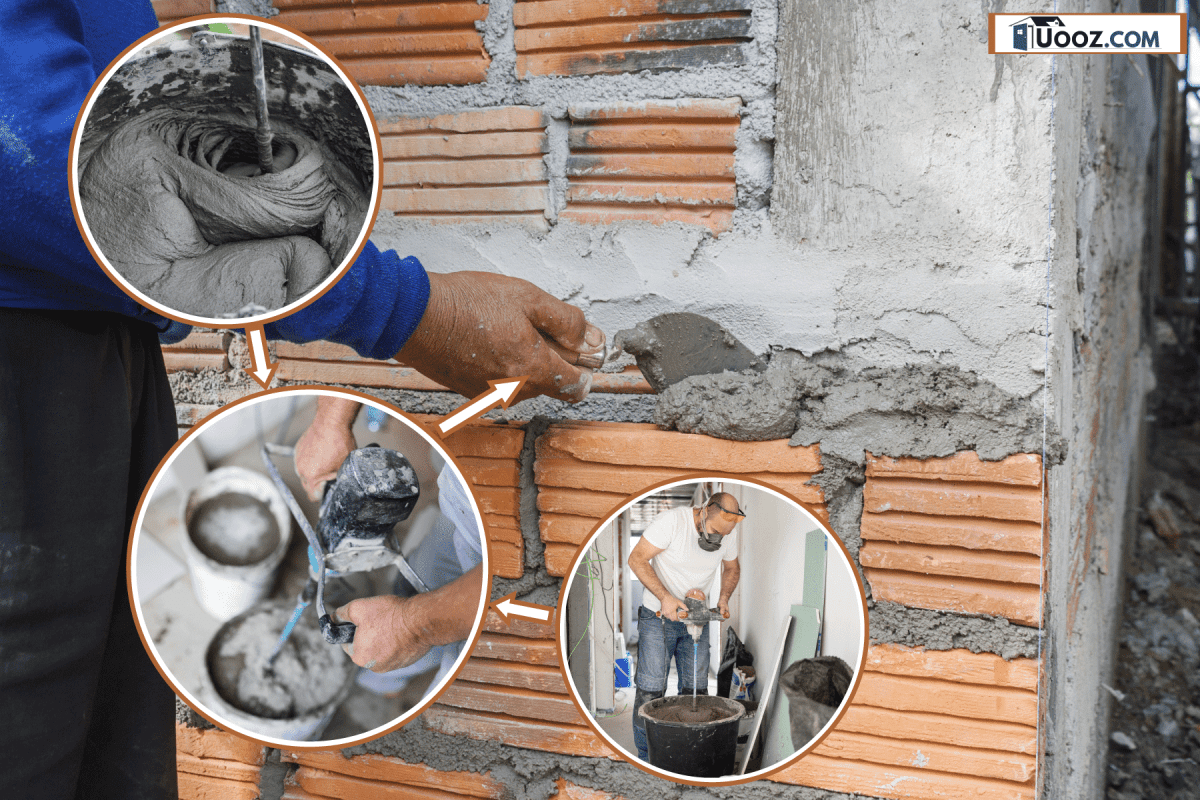
Mortar
What determines mortar type?
Mortar has been in use for bricklaying and stonework for many centuries. While the components vary throughout the years based on the era and regional resources, it is a binding agent blended with an aggregate and water to form a thick adhesive paste that hardens to form a bonded joint.
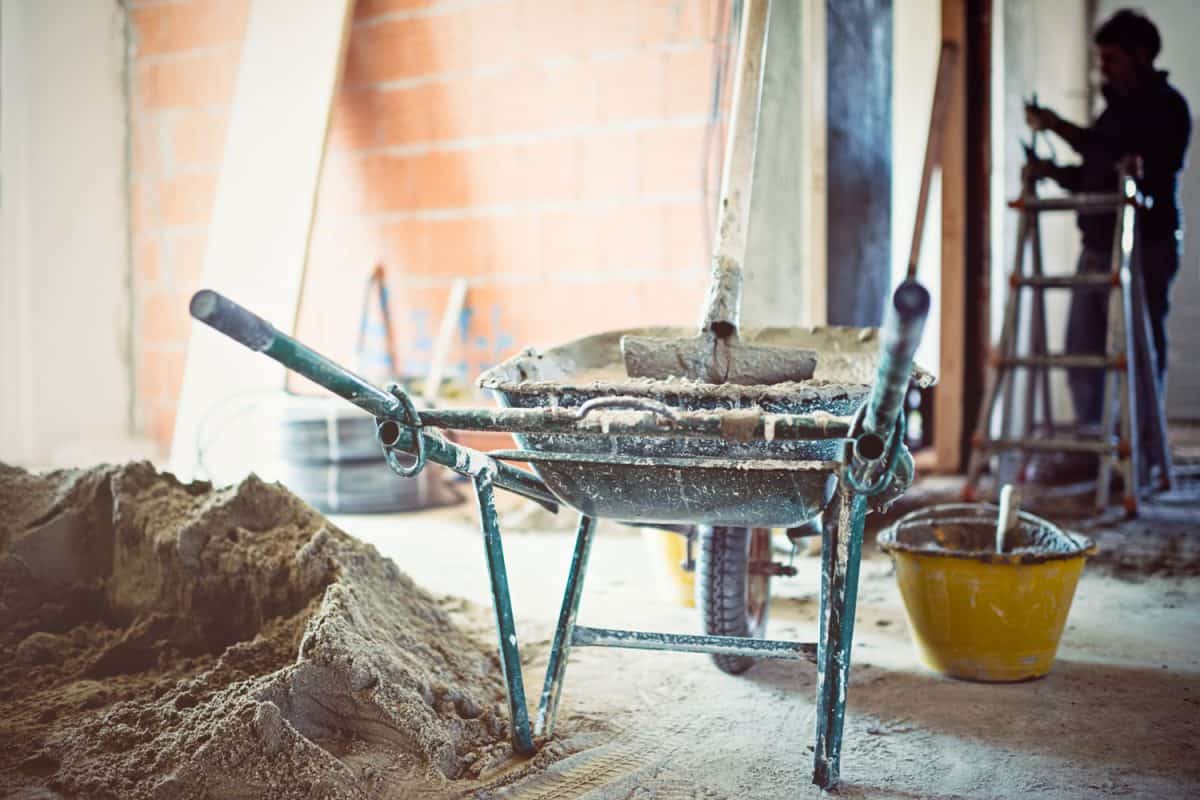
One way to categorize mortar types is by the binding agent and aggregate used in the mixture. Binding agents include cement, lime, sukri, gauged, or mud. Aggregates include sand, sukri, or other natural materials such as sawdust, rick husk, or dung.
The five common types of commercial mortar most commonly used in masonry fall into the gauged mortar category because they contain both cement and lime and a sand aggregate. The different types have different ratios of these ingredients to control strength, resilience, and flexibility. Masonry cement is a pre-mix of the cement and lime in the proper ratio to create each specific type of mortar.
Below is a breakdown of the five most common commercial types of mortar used in masonry and stonework.
N-Type
N-Type mortar has moderate stability with a compressive strength of 750 psi but is frequently used because of its resilience and flexibility. This type of mortar is commonly referred to as all-purpose and used when tuckpointing and soft stone. It is also ideal for exterior, above-grade walls, and interior load-bearing structures.
The standard blend for N-Type is 1-1-6 or one part cement, one part lime, and six parts sand.
S Type
S-Type mortar is also medium strength but with more compression strength than N-type with 1800 psi. You can use this type of mortar with exterior structures below grade and those that come in contact with the ground.
The standard blend for S-Type mortar is 2-1-9 or 2 parts cement, 1 part lime, and 9 parts sand.
M Type
M-Type mortar is the strongest, with a compression strength of 2500 psi. This type is often used on stone and below-grade structures with severe pressure or lateral loads, such as foundations.
The standard blend for M-Type mortar is 3-1-12 or 3 parts cement, 1 part lime, and 12 parts sand.
O Type
O-Type masonry mortar has a minimum compressive strength of 350 psi, making it only suitable for interior, above grade, non-load bearing projects. The best use for O-type mortar is on repairs like repointing or patching and restoration work.
The standard blend for O-Type mortar is 1-2-9 or one part cement, two parts lime, and nine parts sand.
K Type
K-type masonry mortar is soft with a low compressive strength of only 75 psi, making it unsuitable for initial building projects. However, typical uses include restoring and preserving historic masonry where stronger mortars would not be suitable.
The standard blend for K-type mortar is 1-3-10 or one part cement, 3 parts lime, and 10 parts sand.
What are the properties of good mortar?
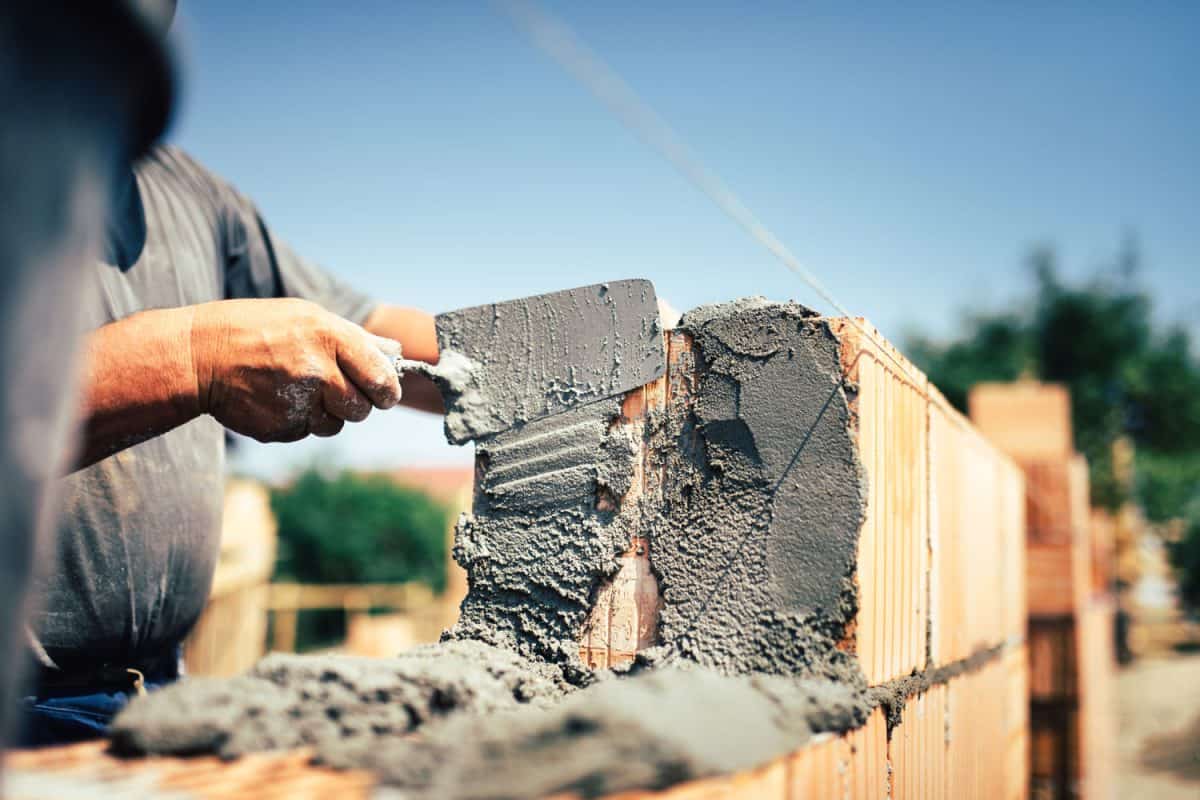
When using mortar, you want to know that you are using a quality product. Below are several properties or characteristics that ensure a good mortar.
- Strong adhesion.
- Durable.
- Water-resistant.
- Affordable.
- Easy to work.
- Cure quickly.
- It should not develop cracks in the joints.
- Has good mobility.
What is the importance of compressive strength in mortar and concrete?
Compressive strength determines the amount of load before failure. For mortar and concrete, the compressive strength measures the power of the binding agent. This trait is one of the most critical characteristics of mortar and concrete because it can determine the long-term performance and durability, discerning if the mortar or concrete can do the required job.
Compressive strength calculations are in pounds per square inch [psi]. The higher the psi, the higher the strength and durability, and the higher the cost. Minimums begin at 2500 psi, but structures that bear more weight and pressure may need up to 5000 psi.
Psi measurements occur at intervals, usually including 3, 7, and 28 days after curing. Studies have determined that water content, shape, and thickness can affect compressive strength.
When determining mortar and concretes performance, tensile strength, which measures the resistance to breaking and cracking, and flexural strength, which measures the ability not to bend, should also be considered.
Are cement and mortar the same thing?
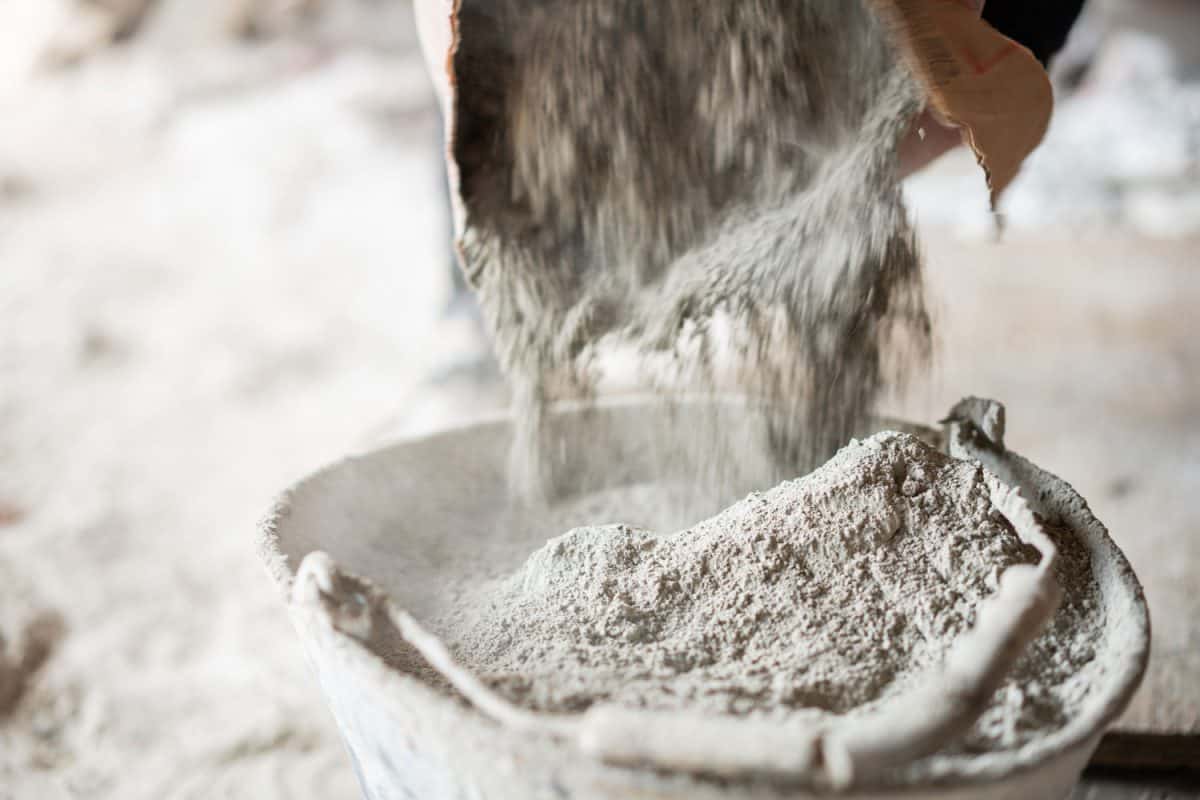
Cement is a component found in mortar, but it isn't the same thing. Cement is a binding agent comprised mainly of limestone with other ingredients such as silica sand, shells, clay, and even iron ore. The mixture is crushed, heated to extreme temperatures, and then ground into a fine powder. Cement is an ingredient not meant to be used alone but rather as a binding component to other masonry mixtures.
Mortar is created by taking cement and adding fine sand, water, and lime. This mixture makes a substance that acts as a glue to hold bricks or stones in place. While mortar is durable, it is not as durable as concrete, a mixture of cement, gravel, sand, other aggregates, and water.
What are the other types of mortar used for?
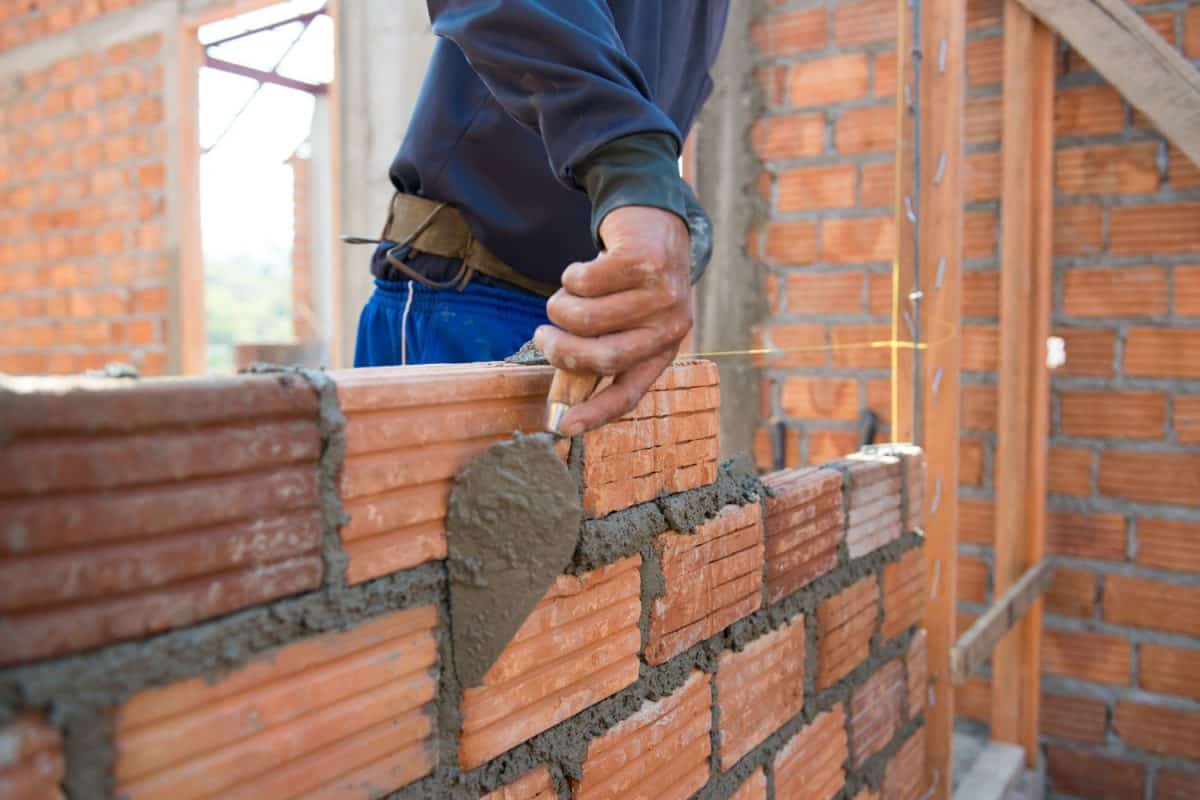
Masonry mortars are not the only types of mortar. Other types of mortar have different construction purposes.
Tilework
For example, you have the type of mortar used with tilework which is different than that used in brickwork. Tile mortar comes in three basic types: thin-set, epoxy, and mastic.
Thin-set
Thin-set is the most common because it forms a powerful bond and is resistant to heat and moisture, making it ideal for indoor and outdoor use. It is also great for leaving out uneven surfaces. Thin-set comes as a pre-mixed powder, only needing water when ready for use.
Mastic
Mastic mortar is a pre-mix with limitations, including a lack of heat or moisture resistance. Further, it cannot be used on glass and isn't suitable for surface leveling. This type of tile mortar is typically only for dry backsplashes or walls with no exposure to water.
However, it's sticky with a quick grab and fast dry, so accuracy is critical because the realignment of tile with mastic mortar is challenging.
Epoxy
Tile epoxy mortar is powerful due to its composition, including resin, hardener, and powder. This high strength quality makes it ideal for use with ceramic tile. However, due to the high cost and the qualified knowledge needed for mixing, it is more for professional service than DIY projects.
Specialized Mortars
Some mortars are variations of the common types with additional ingredients with specialized purposes.
Fire-Resistant Mortar
When laying fire bricks for an oven, chimney, or fire pit, you also need a mortar to withstand extreme heat. While the components of cement and mortar have some natural heat resistant properties, Refractory or high-heat mortar has specialized ingredients added for added heat protection up to 3000 degrees Fahrenheit.
Sound Absorbing Mortar
Mortar is an effective tool in sound absorption, especially in civil infrastructure. Granulated insulating materials are mixed into the cement mixtures to form an acoustic plaster for spreading over walls to absorb sound waves.
X-Ray Shielding Mortar
Adding protection is essential in areas where X-Ray equipment is stored and used. Therefore, walls covered with an X-Ray shielding mortar and a heavy mortar with a minimum bulk density of 22KN/m3 are necessary.
Chemical Resisting Mortar
Specialized mortars add protection in areas where chemical leaks or attacks are possible. There is no exclusive chemical-resistant mortar mixture because they are customized formulations based on the circumstances.
However, furan or phenolic resin, potassium silicate, sodium silicate, sulfur, and bituminous primer are popular coatings used for chemical resistance in mortars.
In Conclusion
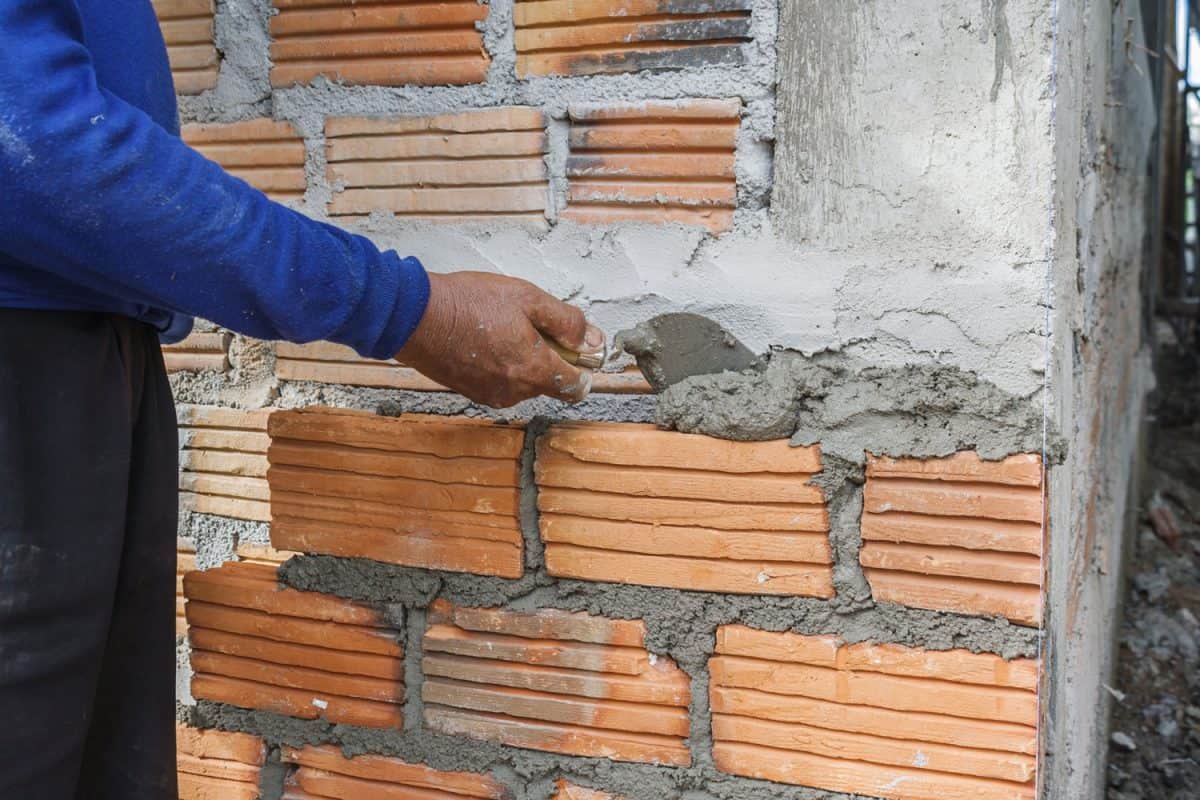
Choosing the right mortar type is critical to ensure that your brickwork can withstand the load it will endure. Understanding the ingredient composition helps you know which one to choose.
For additional reading about mortar, consider What Type Of Mortar To Use Under Shower Base?
Consider reading 5 Types Of Foundation Cracks [What Homeowners Need To Know].
